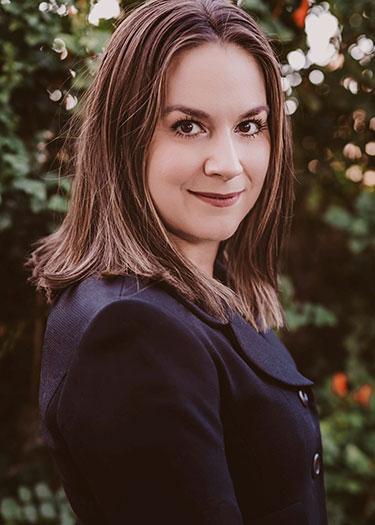My name is Brett Harris, and I became the Nevada Labor Commissioner in September 2022. The Office of the Labor Commissioner (“OLC”) in Nevada regulates private employment by enforcement of laws related to wages, overtime, meal periods, break times, and general labor complaints not otherwise specifically designated elsewhere by statute. Its responsibilities include surveying for and setting the prevailing wage, and enforcing regulations governing public works projects. In addition to regulation, compliance, and enforcement, the OLC handles licensing and credentialing for various business types in Nevada.
On the enforcement side, the OLC engages in “regulation by complaint.” That means most claims before our office are initiated by a complainant and investigated by our staff. The most common complaint in our office is a wage and hour claim that happens when someone is not paid correctly or timely on their final paycheck upon termination or resignation from employment. After receiving a complaint, the claim is assigned to an OLC investigator who works with the parties to analyze substantiating documentation, identify violations, review defenses, and try to work out a resolution.
When attorneys get involved in claims in front of our office, it is usually regarding a case concerning a significant wage claim violation or, most frequently, a public works project dispute arising from Nevada Revised Statutes Chapter 338, which regulates prevailing wage. For those claims, we commonly receive a complaint about a contractor from a third party who provides notice to the OLC and the respondent about the allegations. The claim is referred to the public body that awarded the project to the contractor. The public body performs a 30-day investigation. If violations are substantiated, the public body issues a determination outlining the alleged violations, the proposed damages, and applicable penalties. The determination is served on the respondent and the OLC, and the respondent gets the opportunity to file an objection. After receiving an objection, the public body can amend its determination. Once an opportunity for objections and amendments occurs, the determination and its supporting documentation will be evaluated by the OLC. If our office agrees with the findings, the determination will be reduced to a Final Order that is issued by the OLC. If the parties disagree with the Final Order, any party can request a hearing in front of the Labor Commissioner—me.
Hearings in front of the Labor Commissioner run similarly to any court or administrative hearing. If a party requests a hearing, our office sets a pre-hearing conference. These meetings are quite informal and usually occur virtually. At the pre-hearing conference, we identify the disputes between the parties and explore the possibility of resolving the matter without a full hearing. I treat the prehearing conference like a mini settlement conference: there is no record, all talks of resolution are confidential, and we engage in an open discussion about the reality of the parties’ claims and defenses. At this point in the process, I also provide insight into my factually applicable statutory interpretations.
If we still cannot resolve the dispute, the matter is set for hearing. We set deadlines for disclosures and discuss any pre-hearing briefing or discovery matters. The rules for discovery at an OLC hearing are relaxed, so I urge the parties to err on the side of over-disclosure. I want to see everything a party has that backs up their position. If we got this far, someone is probably looking to make law or set precedent, so I want to make a thorough record for when a Petition for Judicial Review inevitably gets filed.
Parties should treat the hearing like any evidentiary proceeding or bench trial. While the rules are relaxed, there is a court reporter, so I advise parties to govern themselves accordingly. All the regular decorum standards apply, and parties should admit evidence, present witnesses, and state clear objections in service of the record. Hearings are generally one day, but if the parties need longer, that can be set at the time of the pre-hearing conference.
After the hearing, parties can opt to present closing statements by oral argument or brief. After the conclusion of the hearing and/or submission of closing briefs, the OLC has 30 days to issue a written decision with findings of fact and conclusions of law. Again, generally, if we got this far, someone plans to file a Petition for Judicial Review in the district court. If that happens, the OLC becomes a party, and our Deputy Attorney General takes over representing our findings and conclusions.
In a nutshell, this summarizes what to expect when dealing with our agency. However, the OLC prides itself on its accessibility to the public and its industry partners. We strongly encourage parties to reach out to our office to engage in preventative labor care. We make ourselves available through our website, and we have several claim-specific claim specific email addresses dedicated to answering questions from the public about our regulation. We have upwards of 4,500 claims per year, so I am not interested in squeezing your clients out of every possible penalty penny I can get. So if you find yourself with a client dealing with a labor law issue within our jurisdiction, please reach out! We would love to help you.
About this article: This article was originally published in the “Administrative Law” issue of Communiqué, the official publication of the Clark County Bar Association, (Apr. 2023). See https://clarkcountybar.org/member-benefits/communique-2023/communique-apr-2023/.
About the author

Brett Harris grew up in Boulder City, Nevada. She has a Bachelor’s from NYU and Juris Doctor from UNLV. She practiced criminal law before being appointed as the Nevada Labor Commissioner. Brett lives in Henderson with her husband, daughter, and dog.
© 2023 Clark County Bar Association (CCBA). All rights reserved. No reproduction of any portion of this issue is allowed without written permission from the publisher. Editorial policy available upon request.
